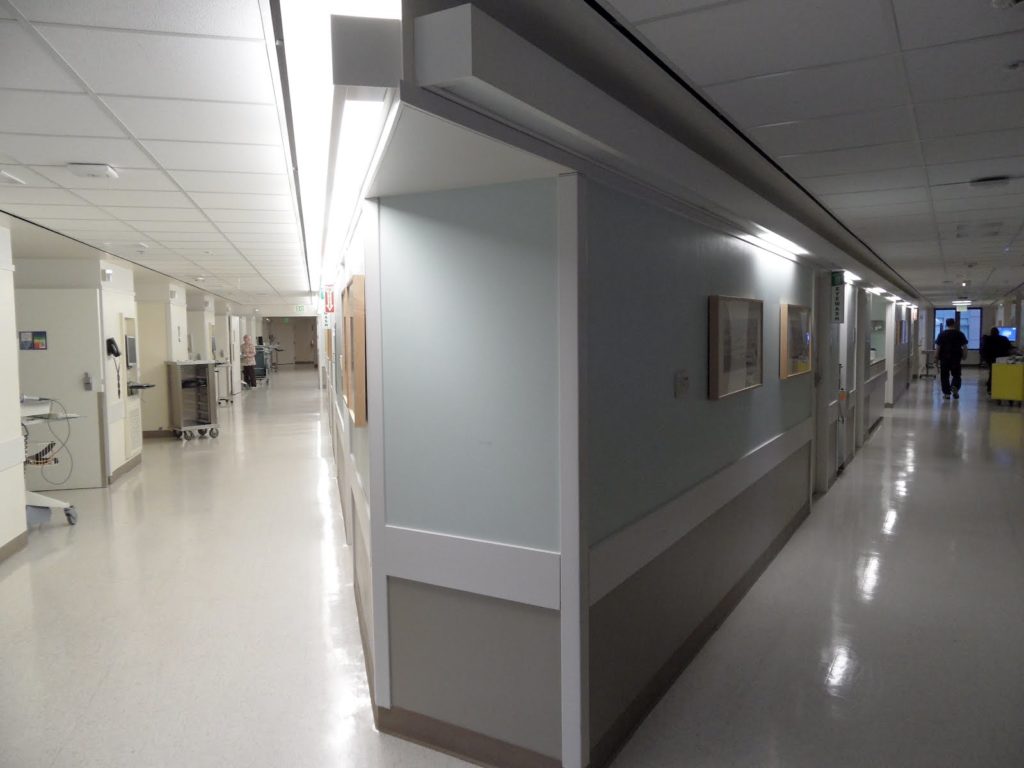
The night is long, and you are all alone.
Even snuggled in the softest cotton, a darkness consumes the stream of hospital lights peaking under the door, shadows snickering into the spiked malaise of the sick body below. Drug addicts call the moment of dispossessed terror a “K-Hole,” but I prefer the image of a person, fully formed, echoing his voice from the inner bowels of a deep, hollow well, the ring of light above, a muted brilliance too far away to touch.
No matter how much love gathers by your bed, the husks of medication, of pain, of fear, aren’t something anyone else can see or understand. You are the only person in the universe, a lone body trying to keep afloat amidst the drowning splashes of a slowly waking intellect.
This is the moment the Trauma Survivor’s Network enters. In sighs, the warmth of experience echoes through your ear: The fear you feel will pass.

The slow crawl back into existence after an accident is difficult to explain to someone who hasn’t held desperately to its gnarled, forbidding fingers. First there is confusion, a dotted terror split by the claw of lucid nightmares. Then dullness, then fear. There are times when the pain is so great that you seek comfort in the white light at the back of unopened eyelids. At other times, resignation overwhelms and you simply sit, staring at the ceiling for hours and hours on end.
The fear you feel will pass.
There are so many humiliations that go unrecorded, one wonders in retrospect if they ever happened at all. The tears that well when you find yourself soaked in a flood of urine for the second time in under an hour. The screeching resignation of that last moment before they put you under in the OR. The slick relief of a morphine pump as your body feels the flat, welcoming lips of a future drug dependency. Withdrawals and constipations so terrible that they defy polite description.
The fear you feel will pass.
People want to help, but Doctor’s ultimately give you couched, inscrutable answers and your family is unaware, unprepared for the long haul ahead. Your need for a voice of pure, genuine understanding is stronger than the cry of any wounded animal.

This is the profound, pained call that the TSN exists to answer. With unparalleled compassion, peer visitors impart hope, wisdom, and, sometimes, the hard truths that no one else will offer.
Writer David Rakoff once described the inner mind in times of treatment:
They say that times of crisis are the true test of one’s character. I wouldn’t know because my character took a powder that year, leaving in its stead a jewel-bright hardness… It’s as if a neutron bomb went off and all you’re left with are hospital corridors.
My neutron bomb bled into a full nine months of medical incarceration. And the fall-out reaches like a spindly arm across everything after. But they were right, the fear passes and it does get easier, as time, commiseration, and honest advice give way to realization:
You are not alone.
(I wrote this piece in response to a request from the Trauma Survivor’s Network to pen an endorsement of its peer visitation program. When I was in the hospital they sent patients who were further along in their recovery to answer questions, crack jokes, and sometimes just sit. As I rather pompously describe above, it was an experience of indisputable, incalculable importance).
The Jewel Bright Hardness: Thoughts on Support and Understanding While in Recovery
By Andrew Phillips Posted in Commentary, Writing on September 22, 2020 0 Comments 3 min read